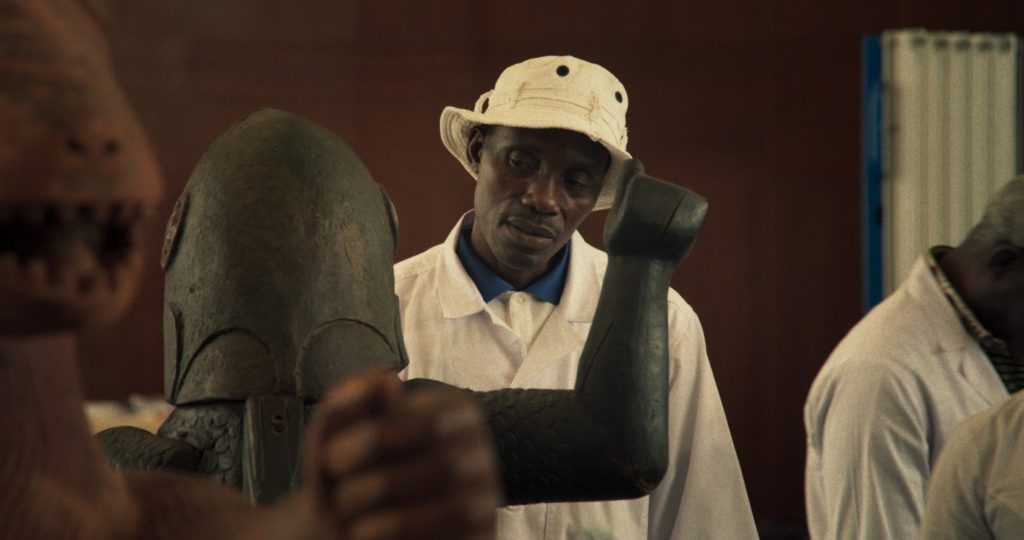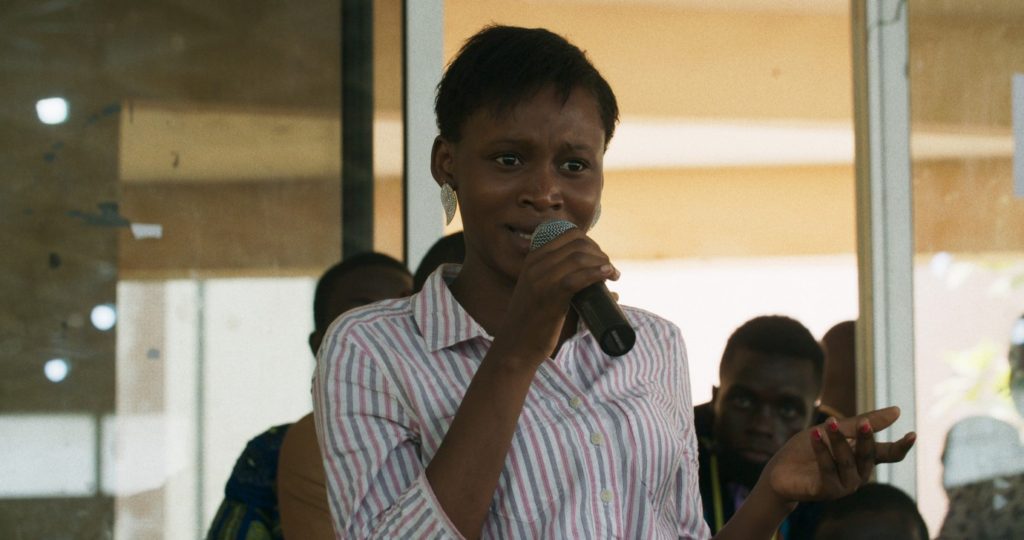Sarajevo review: Dahomey (2024)
Sarajevo Film Festival
Kinoscope Programme

Although colonization was fuelled mainly by strategic economic interests and strategic territorial aspirations, its consequences can be felt in other areas, such as language, culture, education model, and even in the sense of national identity. Although the wave of decolonization after World War II that shook the former empires such as the United Kingdom and France promised that the newly independent nations would forge their identities on their own, it was not the case in practice: most of the still speak the language of their former masters as their official, learn history from their point of view and are dependant of their economy. The cases of stolen works of art and treasures kept in Western museums are usually at the bottom of priority lists in that constellation, and the cases of returning small parts of them to the countries of origin are few and far between. They are also usually being used as publicity stunts by the former colonizers to make them look good and generous.
One such case was examined by the Senegalese-French filmmaker Mati Diop (best known for her 2019 fiction feature Atlantique) in her newest documentary Dahomey. Since its triumph at this year’s Berlinale, it has been touring both the specialized documentary festivals and the unspecialized, general ones. We finally caught it at Sarajevo, in its Kinoscope programme. The history behind it is simple. While colonizing the country now known as Benin, the French took over 700 treasures from the Kingdom of Dahomey that once occupied the mentioned territory. Now, they are returning 26 pieces from the collection to Benin. With her documentary, Diop follows them on the journey from the Quay Branly Museum to their old-new home at the National Museum in Benin, exploring how Benin treats this particular part of its heritage, but also the wider context through different positions towards the colonial past and different ideas for the future.

Diop combines two approaches here. One is observational and matter-of-factly in tracing the journey from the preparations for it at its point of departure to its arrival in Benin and beyond it. Once it gets there, a huge ceremony is arranged but after it reaches its final destination in the national museum, it becomes the center of the debate between different intellectuals and culture workers, which Diop also films using the fly-on-the-wall approach to make a point that the job of decolonization is far from over. To cut that kind of conventional predictability, Diop also introduces the “subjective”, essay-like interludes, in one of the ethnic languages of Benin set against the background of a completely black screen, to mimic the perspective of the treasures themselves. Dahomey is an intriguingly conceived, carefully thought-through documentary with which its auteur manages to walk the fine line and achieve otherwise contrary things. Diop manages to be vocal and makes a point by convincing us that she is merely a neutral observer. It is one of the films whose craft qualities are indisputable, but which will still be the talk of the town for its content, not just on the current festival circuit, but also later on when it comes to platforms.

Year: 2024
Runtime: 68’
World Premiere: Berlinale
Countries: France, Senegal, Benin
Languages: French, English, Fon
Directed by: Mati Diop
Written by: Mati Diop
Cinematography: Joséphine Drouin-Viallard
Editing: Gabriel Gonzalez
Music: Wally Badarou, Dean Blunt
Sound Design: Nicolas Becker
Sound Recording: Corneille Houssou
Colourist: Gilles Granier
Assistant Director: Gildas Adannou
Produced by: Mati Diop, Judith Lou Lévy, Eve Robin
Co-produced by: Olivier Père
Production companies: Arte France Cinéma, Fanta Sy, Les Films du Bal
Sales: Les Films du Losange
















